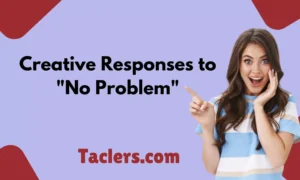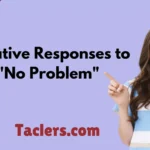Last updated on September 8th, 2024 at 11:02 am
Dealing with fake friends can be a challenging and draining experience. Whether it’s their constant insincerity or their knack for betrayal, these individuals often leave us feeling frustrated and disillusioned.
Sometimes, all you need is a witty or untamed, comeback to express how you feel and to take back some control of the situation.
In this blog post, we’ll dive into a range of clever, humorous, and sharp comebacks you can use to handle fake friends.
Untamed Comebacks: The Classics
When confronting a fake friend, a classic untamed, comeback can be both effective and satisfying. Here are some of the most pointed and humorous comebacks that hit the mark.
“I’d give you a nasty look but you’ve already got one.”
Explanation:
This line cleverly addresses someone’s unpleasant demeanor with a humorous twist. It implies that their attitude is already so negative that you don’t need to add to it.
When to Use:
This comeback is perfect for situations where someone’s behavior is overtly rude or condescending. It allows you to make a point without escalating the situation.
“You’re not fake; you’re just a really good actor.”
Explanation:
This retort highlights the fact that the person’s insincerity is so well-executed that it seems like a performance. It underscores their lack of genuine emotion or intention.
When to Use:
Ideal for moments when someone’s duplicity is clear and you want to call out their act without being too direct.
“I believed in Santa Claus, the Tooth Fairy, and true love, then I met you.”
Explanation:
This comeback uses sarcasm to express disillusionment. It suggests that meeting the fake friend has made you question other things you once believed in.
When to Use:
Use this line when you feel that someone’s actions have completely shattered your trust or expectations.
“I thought I had the flu, but then I realized your presence was just nauseating.”
Explanation:
Comparing their presence to illness adds a humorous yet biting touch. It implies that their company is so unpleasant it feels physically sickening.
When to Use:
This is effective when someone’s presence is consistently bothersome and you want to express your discomfort in a humorous way.
“You should put a warning label on yourself: ‘Causes disappointment.’”
Explanation:
This comeback suggests that their behavior is so consistently disappointing that it should come with a warning. It’s a way of expressing frustration with their repeated failures.
When to Use:
Best used when you’ve been let down repeatedly by someone who seems incapable of meeting expectations.
“Our friendship is like a good book, which I never intend to read again.”
Explanation:
This metaphor indicates that you see the friendship as a completed chapter that you have no interest in revisiting.
When to Use:
Use this when deciding to end a friendship or distance yourself from someone who has proven unreliable.
“I’d agree with you but then we’d both be wrong.”
Explanation:
This retort subtly undermines the other person’s opinion, suggesting that agreeing with them would only compound the mistake.
When to Use:
Ideal for discussions where someone’s viewpoints are not just incorrect, but egregiously wrong.
“You’re like a penny on the sidewalk – not worth much and usually in someone else’s pocket.”
Explanation:
This line uses a metaphor to imply that the person is of minimal value and often someone else’s concern.
When to Use:
This comeback works well when you want to express that someone’s presence is trivial or unimportant.
“You’re about as useful as a knitted condom.”
Explanation:
The hyperbolic nature of this statement emphasizes the uselessness of the person or their actions.
When to Use:
Use this line when someone’s contributions or actions are laughably ineffective.
“You’re the reason we have warning labels on everything.”
Explanation:
This comeback humorously suggests that the person’s behavior has been so problematic that it necessitates precautions.
When to Use:
Effective when dealing with someone whose actions consistently create issues or complications.
Clever Comebacks: The Smart Retorts

Clever comebacks are a great way to address a fake friend with a bit of intellectual humor. These lines use wit and sharpness to make a point without being overly harsh.
“If I wanted to hear from an idiot, I’d watch the news.”
Explanation:
This comeback combines a critique of the person’s intelligence with a humorous comparison to the news.
When to Use:
When someone’s commentary or opinions are foolish and you want to highlight their lack of insight.
“You’re like Monday mornings, nobody likes you.”
Explanation:
This line uses the universally disliked concept of Monday mornings to describe how the person’s presence is received.
When to Use:
Suitable for when someone’s presence is consistently unwelcome or irritating.
“Our friendship is like a hot cup of coffee; it was good until it went cold.”
Explanation:
This metaphor compares the relationship to coffee that has lost its warmth, indicating that it was once enjoyable but is now no longer appealing.
When to Use:
When you feel that a friendship has lost its value and warmth over time.
“Keep rolling your eyes. Maybe you’ll find a brain back there.”
Explanation:
This comeback humorously suggests that the person’s dismissive attitude might be hiding a lack of intelligence.
When to Use:
When someone’s dismissive attitude or behavior makes you question their intellectual capacity.
“You’re not foolish; you just have bad luck when you think.”
Explanation:
This retort implies that while the person may not be outright foolish, their thinking process is consistently flawed.
When to Use:
Ideal for moments when someone’s decisions or thoughts are poorly considered.
“Why don’t you slip into something more comfortable, like a coma?”
Explanation:
This dark humor comeback suggests that the person’s presence is so intolerable that you’d prefer they be absent.
When to Use:
For extreme situations where the person’s company is unbearable.
“I’d explain it to you, but I left my English-to-Dumbass Dictionary at home.”
Explanation:
This retort playfully implies that the person’s lack of understanding is beyond your ability to fix without special tools.
When to Use:
When trying to explain something to someone who seems unable to grasp simple concepts.
“I treasure the time I don’t spend with you.”
Explanation:
This comeback expresses that time away from the person is valuable, indicating that their presence is not missed.
When to Use:
When you want to make it clear that their absence is preferable to their presence.
“You’re like a software update. Whenever I see you, I immediately think ‘not now’.”
Explanation:
Comparing the person to an unwelcome software update suggests that their presence is always inconvenient.
When to Use:
When dealing with someone who is consistently annoying or interruptive.
“I’d give you a nasty look but I see you’ve already done your makeup.”
Explanation:
This comeback humorously combines an insult with a comment on the person’s appearance.
When to Use:
When the person’s attitude or appearance is particularly off-putting.
Humorous Comebacks: Light-Hearted Yet Sharp
Humorous comebacks can defuse tension while still delivering a pointed message. These lines use humor to address fake friends in a way that is both entertaining and insightful.
“You’re like a cloud. When you disappear, it’s a beautiful day.”
Explanation:
This retort compares the person to a cloud that, when gone, makes everything better.
When to Use:
When the person’s presence negatively impacts the atmosphere and their absence is welcomed.
“You’re the human version of a participation award.”
Explanation:
This comeback suggests that the person is as meaningless as a participation award, which is given to everyone regardless of their actual merit.
When to Use:
Effective when the person’s contributions feel insignificant or unworthy.
“You’re the reason the gene pool needs a lifeguard.”
Explanation:
This humorous line implies that the person’s behavior or traits are so problematic that they pose a risk to the gene pool.
When to Use:
When someone’s behavior is so problematic that it feels like it’s hurting more than helping.
“I’d love to insult you, but I’m afraid I won’t do as well as nature did.”
Explanation:
This retort humorously suggests that the person’s inherent flaws are more significant than any insult you could come up with.
When to Use:
When the person’s natural traits are so flawed that they surpass any attempt at verbal insult.
“You’re like a slinky – not really good for much but bring a smile to my face when pushed down the stairs.”
Explanation:
This metaphor uses the image of a slinky to humorously express disdain, implying that the person is only amusing in their downfall.
When to Use:
When the person’s shortcomings are more entertaining than their presence is valuable.
“You are proof that evolution CAN go in reverse.”
Explanation:
This line humorously suggests that the person’s behavior is so regressive that it represents a backward step in evolution.
When to Use:
For someone whose behavior is outdated or counterproductive.
“I’d agree with you, but then we’d both be wrong.”
Explanation:
Repeated with a twist, this comeback reinforces the idea that agreeing with the person would only compound the mistake.
When to Use:
When the person’s opinions are flawed and agreeing with them would be detrimental.
“I’d explain it to you, but I’m not a miracle worker.”
Explanation:
This retort humorously suggests that explaining something to the person is beyond your capabilities, framing it as a miraculous task.
When to Use:
Effective when you find yourself repeatedly trying to explain something to someone who seems unable to understand.
“You’re as bright as a black hole, and twice as dense.”
Explanation:
This comeback uses the imagery of a black hole to emphasize the person’s lack of intelligence, suggesting that they are not only dim but also extremely dense.
When to Use:
When dealing with someone whose level of understanding or intellect is severely lacking.
“You’re not the foolish, person on the planet, but you sure better hope they don’t die.”
Explanation:
This line humorously implies that while the person may not be the absolute worst in terms of intelligence, they are close enough that it’s worth worrying about.
When to Use:
When you want to make a pointed comment about someone’s intellectual shortcomings while still keeping it light-hearted.
“If ignorance is bliss, you must be the happiest person on earth.”
Explanation:
This retort suggests that the person’s lack of knowledge or awareness makes them incredibly happy, playing on the idea that ignorance leads to happiness.
When to Use:
Ideal for situations where someone’s lack of knowledge or awareness is glaringly evident.
“I’d give you a dirty look but you’ve already got one.”
Explanation:
Similar to other comebacks, this line humorously implies that the person’s appearance or attitude is already unpleasant enough without further comment.
When to Use:
Use this when you want to make a point about someone’s negative demeanor without being overly confrontational.
“You’re like a software glitch. Annoying and hard to get rid of.”
Explanation:
Comparing the person to a software glitch highlights their irritating and persistent nature.
When to Use:
When someone’s behavior is repeatedly problematic and hard to avoid or address.
“Our friendship is like a book. Too bad it’s more of a fiction.”
Explanation:
This metaphor suggests that the friendship was never genuine, comparing it to a fictional book.
When to Use:
When you want to express that the relationship was insincere or fabricated.
“I’d say you’re ‘two-faced’, but if you had two, wouldn’t you wear the better one?”
Explanation:
This clever line uses a play on the term “two-faced” to humorously suggest that if the person had multiple faces, they would choose a better one.
When to Use:
Effective when dealing with someone whose duplicity or dishonesty is particularly pronounced.
“You have the perfect face for radio.”
Explanation:
This classic line humorously suggests that the person’s appearance is better suited for radio, where they wouldn’t be seen.
When to Use:
When you want to comment on someone’s appearance in a light-hearted, humorous way.
Tips for Confronting a Fake Friend
While witty and untamed, comebacks can provide temporary satisfaction, they may not always be the best approach for dealing with a fake friend. Here are some tips to consider before confronting them:
1. Assess the Situation
Before you respond, take a moment to evaluate the situation. Consider whether the confrontation is worth your time and energy. Sometimes, it’s better to distance yourself rather than engage.
2. Be Direct but Respectful
If you decide to confront the person, aim to be direct but respectful. Address the specific behavior that bothers you rather than making general or personal attacks.
3. Keep Emotions in Check
Try to keep your emotions under control during the confrontation. Reacting out of anger or frustration can escalate the situation and make it harder to resolve.
4. Focus on Your Feelings
Use “I” statements to express how their behavior affects you. For example, “I feel hurt when you say things that aren’t true,” rather than “You always lie.”
5. Set Boundaries
Clearly communicate your boundaries moving forward. Let them know what behavior you will not tolerate and how you expect to be treated.
6. Consider the Outcome
Think about what you want to achieve from the confrontation. Are you looking for an apology, an explanation, or simply to end the friendship? Clarify your goals before engaging.
7. Seek Support
If you find the situation overwhelming, consider seeking advice from a trusted friend or counselor. They can provide perspective and support as you navigate the confrontation.
Conclusion
Handling fake friends can be challenging, but using the right comebacks and strategies can help you express your feelings and reclaim your peace of mind. Whether you choose a witty remark or a more serious approach, remember that the goal is to address the issue in a way that feels true to you and maintains your dignity.
By understanding how to use these comebacks effectively and knowing when to engage or distance yourself, you can navigate the complexities of fake friendships with confidence and clarity.

Ethan Richards, a distinguished writer at Taclers.com, excels in blending sharp insights with engaging storytelling. His background in sociology adds depth to his analysis of human reactions, making his articles both thought-provoking and entertaining. Explore the world of reactions with Ethan and see familiar moments in a whole new light.










